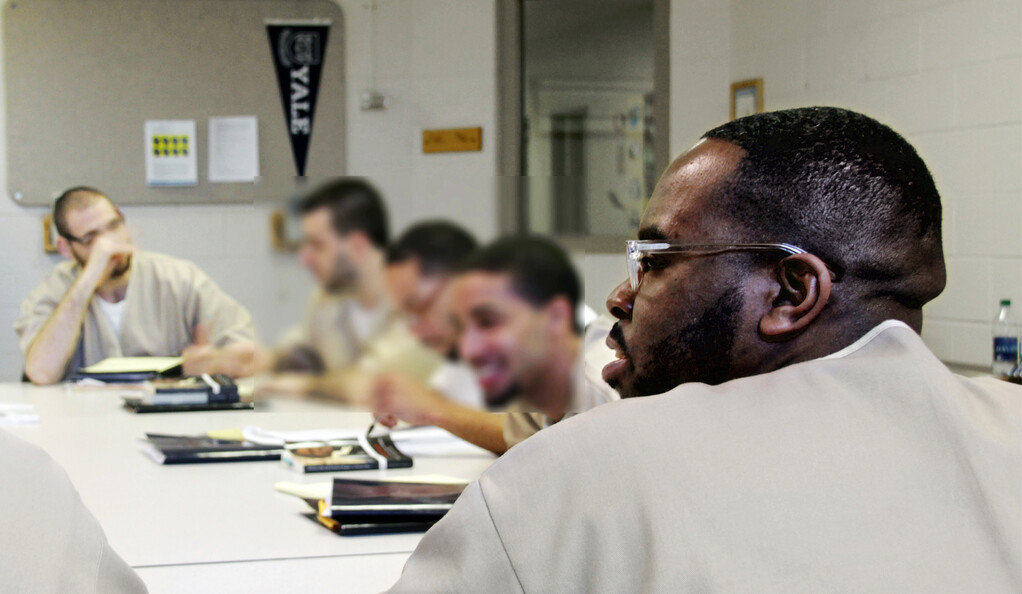
Yale News
On April 15, the Yale Prison Education Initiative and the University of New Haven announced that they had received a three-year, $1.5 million grant from The Andrew W. Mellon Foundation — an organization that supports the arts and humanities in the United States. YPEI, a Dwight Hall program founded in 2016, has offered for-credit courses to incarcerated students at the MacDougall-Walker Correctional Institution since 2018.
YPEI and the University of New Haven were awarded the Mellon grant in partnership on March 12 and plan to use this funding to expand their current operations, including hiring additional staff members as well as strengthening advising systems and academic resources for students. In addition, the funding will allow the program to offer accredited associate’s degrees from the University of New Haven for the first time.
“If [Yale College’s] mission is to seek exceptionally promising students of all backgrounds, what YPEI does is activate the word ‘seek’,” Zelda Roland ’08 GRD’16, the founding director of YPEI and director of the Yale-UNH partnership, told the News. “We can no longer persistently ignore the quality of potential students who are incarcerated in our own state’s prisons.”
YPEI typically offers for-credit courses during the summer session and non-credit courses during the academic year, with classes taught by Yale professors ranging from Latin and social theory to painting. Through the new partnership, YPEI-UNH will be able to offer for-credit courses year-round, which can be taught by either Yale or University of New Haven professors. In addition to free college courses, YPEI-UNH plans to develop a fellowship program to create a college-to-career pathway for alumni of higher education prison programs. YPEI raises all of their operational funds from private grants and donations, Roland said.
Mira Debs GRD ’16, executive director of the Education Studies Program and a member of the YPEI Faculty Oversight Committee, taught two guest seminar classes to YPEI students in the fall of 2019, which she described as a “profoundly moving” experience.
“They were so attentive to detail, they had done the readings as carefully, perhaps more carefully than the Yale students, and they were really invested in thinking about what they had received as part of their education, and what they had lost in their education,” Debs said. “It’s very transformative as a teacher that you’re working with students who are making you reflect and making you better.”
According to Roland, YPEI has been considering collaborating with the University of New Haven for the past few years. Last year, Dean Marvin Chun appointed an ad-hoc faculty committee to review YPEI’s work, who recommended a partnership with another institution which would allow YPEI students to receive degrees.
“We wanted a real concrete credential that felt achievable for students in a reasonable amount of time so that after two years, there’s a real bookend, something to carry with you,” Roland said.
Yalies can become involved in YPEI-UNH’s work in numerous ways. For example, more than 50 Yale students in the YPEI’s Transcription Network volunteer to transcribe incarcerated students’ handwritten work for classes and workshops as well as events and lectures that might interest them. YPEI is also currently recruiting summer fellows who will help coordinate programming including fundraising, social media work and liaising with community partners to assist formerly incarcerated students in their reentry.
In addition, YPEI-UNH anticipates recruiting academic strategy mentors in partnership with the Poorvu Center for Teaching and Learning this upcoming academic year. Through a new collaboration with Yale Library, a group of undergraduate volunteers are also working to process the research requests of incarcerated students, helping to expand their access to library resources.
Ananya Kumar-Banerjee ’21, who created a creative writing workshop for incarcerated students as a 2020 Dwight Hall Summer Fellow, said that she has enjoyed seeing students respond to their programming.
“I highly recommend students get involved with YPEI’s work,” Kumar-Banerjee told the News. “As a Yale student, I’m cognizant of how I personally benefit from an institution that concentrates wealth and access among a selective minority. Organizations like YPEI redistribute otherwise-restricted resources to those who are marginalized.”
Faculty that teach YPEI-UNH courses are compensated for their work in the same way they would be if they were teaching a course at their home university. Through the partnership, a limited number of faculty will be able to apply to the Teaching Relief for Learning program, which is given to professors to release them from some of their typical duties during the semester to explore new academic fields or hone technical knowledge. In this case, it would allow them to prioritize teaching with YPEI-UNH.
Roderick Ferguson, chair of the YPEI Faculty Oversight Committee and professor of women’s, gender and sexuality studies, told the News he believes the Teaching Relief program will create faculty interest in working with YPEI-UNH.
“It has a kind of redistributive quality, for me, in that it is about trying to democratise education as much as possible, so that it’s not the private product of a select few,” Ferguson said. “If we’re talking about issues concerning social justice, it makes sense to also take it to those communities that, you know, are disenfranchised.”
Caleb Smith, a professor of English and American studies, agreed that supporting incarcerated students is an important application of theories around equity that are taught in the classroom.
“Reorganizing your syllabus around social justice is one thing, but expanding your classroom to include people who have been most directly caught up in and harmed by the criminal justice system is a really significant extension of that,” Smith said.
The MacDougall-Walker Correctional Institution is located in Suffield, Connecticut.
Simisola Fagbemi | simi.fagbemi@yale.edu










